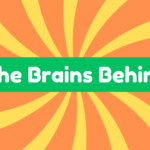"Rack your brains" describes the intense mental effort to solve problems or recall information. This phrase has historical roots, originally referring to torture methods, indicating a figurative strain on one's mind. It highlights the struggle many face in a fast-paced world where cognitive demands increase. The phrase encompasses various synonyms and collocations, portraying a relatable struggle. Understanding its relevance today reveals deeper implications about modern thought processes, inviting further exploration into its significance in daily life.
Synonyms
When exploring synonyms for the phrase "rack your brains," it becomes evident that language offers several alternatives, though each carries its unique connotation. These alternatives can effectively represent a mental workout or a cognitive struggle, often with varying degrees of intensity.
- Strain one's brain
- Sweat over
- Puzzle out
- Grapple with
- Search one's mind
Each term invites a nuanced approach to expressing thought processes. While some emphasize urgency, others highlight the inherent challenge, prompting skepticism on the effectiveness of such alternatives. Ultimately, choosing the right synonym requires awareness of context and the desired emotional impact.
Example of Sentences
The phrase "rack your brains" is commonly used to describe the intense mental effort involved in trying to remember something or solve a problem. In various contexts, individuals find themselves engaging in cognitive strain, often in pursuit of creative solutions or information retrieval. Some illustrative examples include:
- "She racked her brain for innovative brainstorming techniques."
- "He kept racking his brain, hoping for a memory enhancement breakthrough."
- "They racked their brains to recall essential project details."
- "She racked her brain to draft an exceptional proposal."
- "He racked his brain for a unique gift idea."
Each instance showcases the challenges associated with deep thinking and recall.
Origin
Originating from a historical context that few may appreciate today, the phrase "rack your brains" carries a significant weight of meaning. Its roots lie in the grim practice of torture, where the "rack" was a device that inflicted severe physical strain. This historical significance paralleled cognitive challenges, as the term evolved to depict the intense effort of deep thinking or problem-solving. Consequently, to "rack" one's brain implies not only a struggle against mental fatigue but also a comparison to enduring physical hardship. Such associations provoke critical thought about how language reflects deeper societal experiences, blending history with contemporary cognitive demands.
Collocations
Collocations related to the phrase "rack your brains" reveal how language evolves to express shared experiences of mental exertion. These expressions illustrate the concepts of brain strain and the mental effort involved in recalling information or solving problems. Understanding these collocations can enhance communication and provide insight into cognitive challenges people face. Some notable collocations include:
- Rack one's brain
- Racking one's thoughts
- Strain one's mind
- Brainstorming ideas
- Mental gymnastics
How to Use in Everyday Language
Using the phrase "rack your brains" can highlight the common struggle of remembering or thinking through a problem in everyday conversations. This expression resonates with various mental challenges encountered in daily life, making it a valuable addition to one's vocabulary.
| Everyday Scenario | Example Usage | Mental Challenge |
|---|---|---|
| Misplaced keys | "I'm racking my brain for where I put my keys." | Trying to recall the last location. |
| Surprise party planning | "Let's rack our brains for fun ideas!" | Generating unique concepts. |
| Solving a mystery | "He's racking his brains for clues." | Analyzing information critically. |
| Remembering a phone number | "I racked my brain all evening!" | Recalling a specific detail. |
Why Is It Still Relevant Today?
Why does the phrase "rack your brains" continue to hold significance in today's fast-paced society? In an era dominated by technological advancements, the pressure to demonstrate cognitive endurance has intensified. Individuals find themselves employing various problem-solving techniques to navigate daily challenges. This phrase encapsulates the struggle of recalling information or generating innovative ideas amidst overwhelming demands. As professionals and students alike grapple with distractions, the act of "racking" one's brain becomes a metaphor for the mental exertion required to connect dots and find solutions. Ultimately, it serves as a reminder of the persistence needed to thrive in an increasingly complex world.







